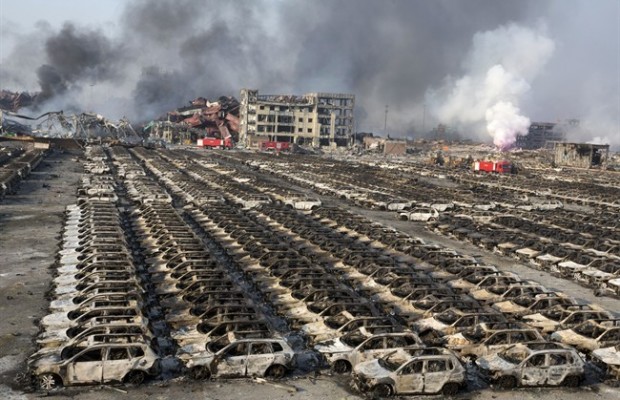-
Tips for becoming a good boxer - November 6, 2020
-
7 expert tips for making your hens night a memorable one - November 6, 2020
-
5 reasons to host your Christmas party on a cruise boat - November 6, 2020
-
What to do when you’re charged with a crime - November 6, 2020
-
Should you get one or multiple dogs? Here’s all you need to know - November 3, 2020
-
A Guide: How to Build Your Very Own Magic Mirror - February 14, 2019
-
Our Top Inspirational Baseball Stars - November 24, 2018
-
Five Tech Tools That Will Help You Turn Your Blog into a Business - November 24, 2018
-
How to Indulge on Vacation without Expanding Your Waist - November 9, 2018
-
5 Strategies for Businesses to Appeal to Today’s Increasingly Mobile-Crazed Customers - November 9, 2018
Rain stokes pollution fears at China blasts site
Panasonic, which has a product development center 5 kilometers (3.1 miles) from the blast site, kept its offices closed Monday, out of concern for employee safety.
Advertisement
Tianjin: Heavy rain fell yesterday on the remains of a Chinese industrial site devastated by giant explosions, complicating clean-up efforts and heightening fears about toxic contamination as ceremonies were held to mark the disaster’s 114 deaths.
Chinese state-run media on Monday lambasted officials for a lack of transparency over the explosions, echoing frustrations voiced by Tianjin residents, victims’ relatives and netizens over what they say has been a slow release of information in the aftermath of the explosions.
Other news reports said the stocked chemicals included calcium carbide, which produces highly flammable acetylene when wet, as well as the potentially explosive compounds potassium nitrate and ammonium nitrate.
By Sunday, authorities confirmed there were “several hundred” tons of the toxic chemical sodium cyanide on the site at the time of the blasts, although they said there have not been any devastating leaks.
At a press conference on Monday morning, Bao Jingling, the chief engineer from Tianjin’s environmental protection bureau, said excessive levels of the toxic chemical had been detected in surface wastewater at the blast site.
Insurance companies including Zurich Insurance Group AG and Allianz SE said on Friday they had received claims from clients that had been affected by the disaster but could not provide any estimate of the potential losses.
He played down fears over its presence, saying that military specialists and government staff had twice scoured a 1km radius from the centre of the blasts.
The massive explosions late Wednesday night happened about 40 minutes after reports of a fire at the warehouse and after an initial wave of firefighters arrived and, reportedly, doused some of the area with water.
Hundreds of residents demonstrated outside a Tianjin hotel on Monday, demanding government compensation for their badly damaged apartments. The protesters chanted “buy back (homes)” and carried signs that read “fix our homes, that’s our demand”, but there were no clashes.
Seventy people are still missing after two huge explosions occurred before midnight on August 12 at the warehouse that stored hazardous chemicals.
The death toll from the port explosions has since been revised to 114. More than 700 people were injured and thousands have been displaced.
Information has also emerged that the firefighters were poorly paid and equipped temporary contract workers, with no specialised training in chemical fires.
The comments follow widespread rumors online that officials were covering up the numbers of firefighters and police who had died.
Tianjin is one of eastern China’s most important oil and gas terminals, with large commercial and strategic oil storage facilities as well as a floating storage and regasification unit for liquefied natural gas imports.
At the Tianjin development zone fire station, firefighters bowed to 29 photos of the firemen who died in the flames.
Questions are raised as to whether Zhang Gaoli has any links to Rui Hui, or, more importantly, the companies that it supplies.
Advertisement
It is mostly used in chemical manufacturing, for fumigation and in the mining industry to extract gold and silver.





























